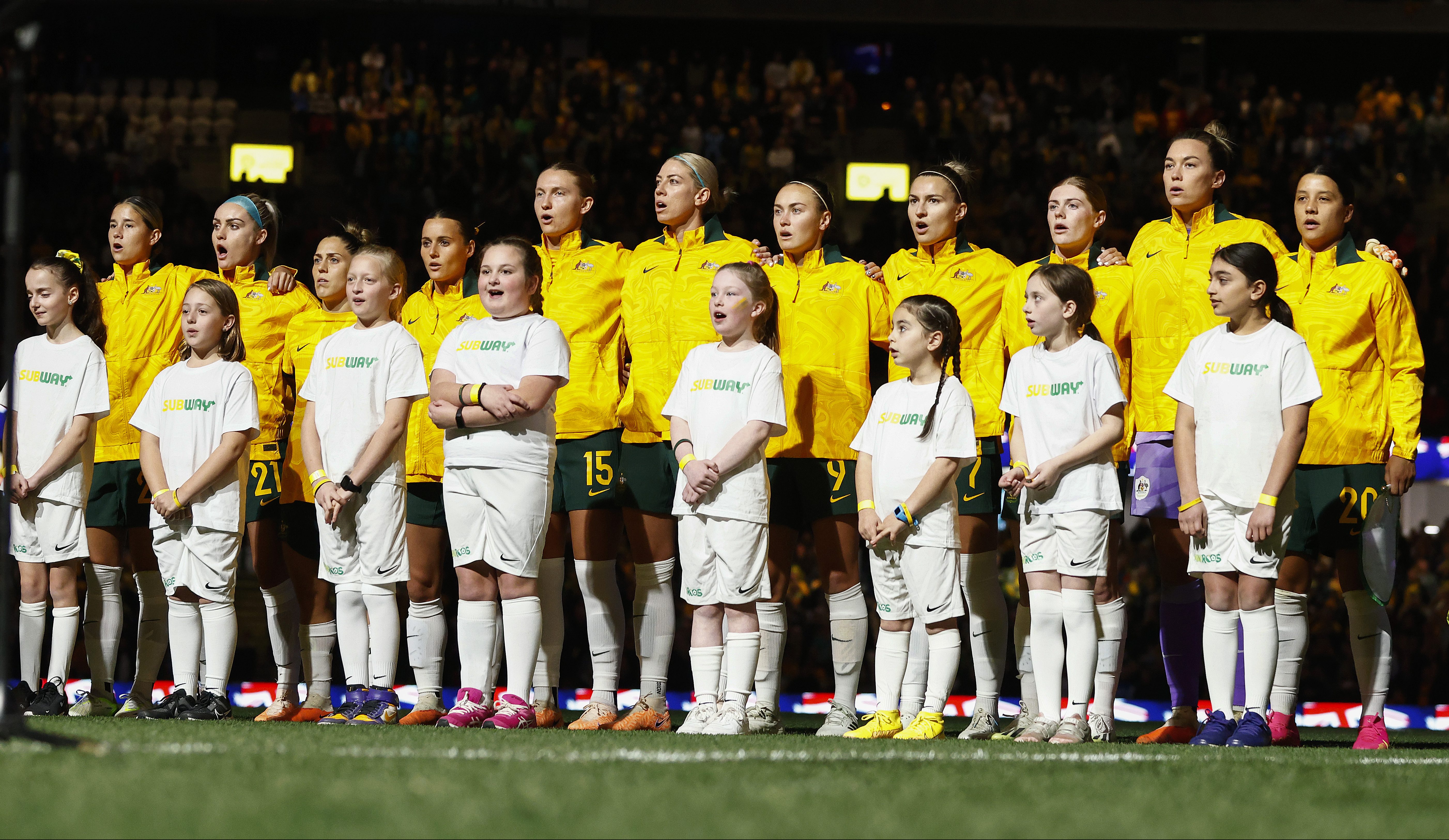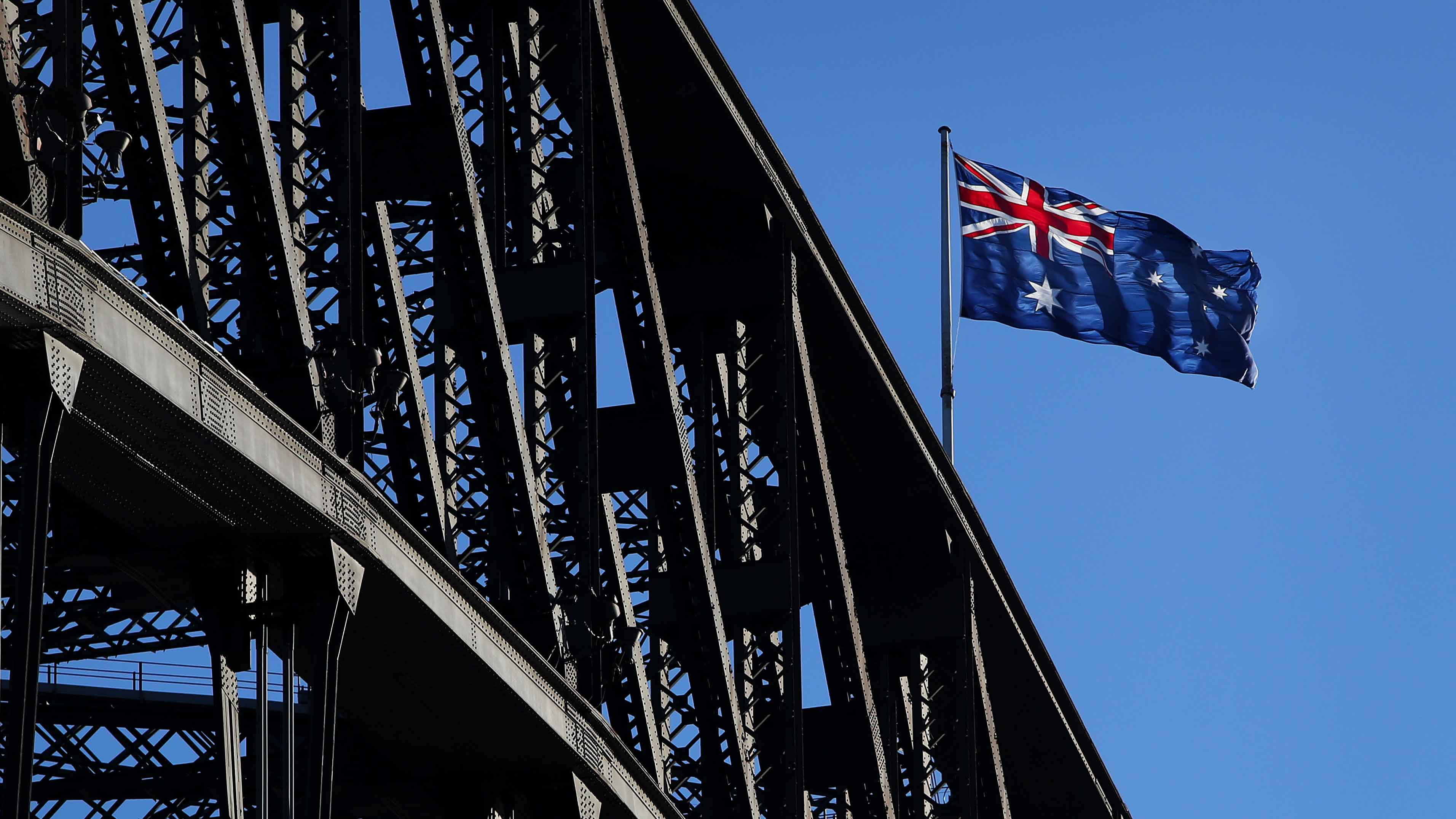Indigenous sports leaders and advocates have urged FIFA to address what they've called an “egregious omission” of First Nations organizations in Australia in a Women’s World Cup legacy plan.
Former Sydney Swans Australian rules football star Adam Goodes and John Moriarty, the first Indigenous player to make Australia’s national soccer team, are among the signatories to a letter sent to soccer’s world governing body regarding funding in the wake of the World Cup.
Football Australia’s Legacy ’23 plan, formed in 2021, is a strategy designed to deliver economic, social and health benefits and multicultural inclusion following its co-hosting of the global tournament.
The joint letter to FIFA said while the report released this month features a statement acknowledging First Nations contributors to the success of women's soccer in Australia, it doesn’t include specific funding for Indigenous programs.
The letter was also signed by Sydney FC goalkeeper Jada Whyman, an Indigenous player who was called into Matildas camp in April for games against England and Scotland, co-chief executive of Professional Footballers Australia, Kate Gill, A-League women’s players Gema Simon and Allira Toby and former Socceroo Travis Dodd.
“Despite ubiquitous Indigenous culture, symbolism, traditional ceremonies and installations at the World Cup and the holding out of Indigenous culture as something of central value to football, not a single dollar from the legacy program has been committed to organizations that are Indigenous-led,” the letter said.
“Without support for the Indigenous community and their programs, we consider this symbolism empty.”
The letter was also sent to Football Australia.
Before the Women’s World Cup began, FIFA secretary general Fatma Samoura said the tournament provided a platform to give opportunities to all people. She said officials needed to highlight issues for First Nations people in Australia and New Zealand.
Get a weekly recap of the latest San Francisco Bay Area housing news. >Sign up for NBC Bay Area’s Housing Deconstructed newsletter.
“Because you cannot play the simple game of football by leaving outside the people without whom this nation would not have existed,” Samoura said during a visit with Indigenous players. “We cannot come and just play and leave.”
Indigenous track legend Cathy Freeman, who won the 400-meter gold medal at the 2000 Sydney Olympics in one of Australia's most iconic sporting moments, visited the Australian women's team before the tournament began. The Matildas have two Indigenous players in their current lineup, goalkeeper Lydia Williams and striker Kyah Simon.
Separately, the Indigenous Football Australia Council, formed to assist the John Moriarty Football program, is also calling on FIFA and Football Australia to include funding for First Nations-led programs in the Legacy ’23 plan before the end of the Women's World Cup.
The John Moriarty Foundation has also launched a crowd-funding campaign “ Call Time on Inequality ” to address the lack of elite level Indigenous players and raise funds to tackle the disparity they face.
“Now is the time to level the playing field by reaching even more children, more communities and empowering the next generation of Indigenous football players,” Moriarty said. “There needs to be increased investment in solutions that will lead to impactful social change and ensure equal access to football for both grassroots and elite Indigenous players.”



